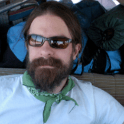
David Barbeau
Clastic sedimentology, tectonics and sedimentation, basin analysis, thermochronology, sediment provenance, and tectonics of the southern Andes and Antarctica.
Below is a list of faculty in the School of the Earth, Ocean & Environment. Please use the navigation on the left menu to see a complete directory of faculty,
staff and advisors associated with the School. Click the following for a PDF of our Faculty/Staff directory.
Click the following for a PDF of the current SEOE Graduate Students.

Clastic sedimentology, tectonics and sedimentation, basin analysis, thermochronology, sediment provenance, and tectonics of the southern Andes and Antarctica.
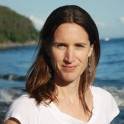
Dr. Barnes received her Ph.D. in sustainable development from Columbia University in 2010 and held a postdoctoral fellowship with the Yale Climate & Energy Institute and Yale School of Forestry & Environmental Studies from 2011 to 2013. She joined the University of South Carolina in 2013 as an Assistant Professor in the Department of Geography with a joint appointment in the School of the Earth, Ocean & Environment .
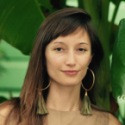
Monica Barra completed her Ph.D. in Cultural Anthropology from the Graduate Center at the City University of New York in 2018. Additionally, she holds a masters degree in American Studies from Rutgers University and a bachelors degree in Urban Studies and Literature from the Johnston Center for Integrative Studies at the University of Redlands.
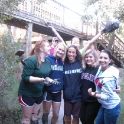
Biogeochemical cycling and export fluxes of nutrients. Global climate change in past and present day environments. Utilization of cosmogenic and uranium series radioisotopes to study ecological processes. Development of new analytical techniques.
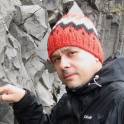
Radiogenic isotope (Hf, Nd, Sr, Pb, Os) and trace element geochemistry, Igneous Petrology, in their broadest sense. Geochemical evolution of the Terrestrial mantle. Mantle plume dynamics, plume-lithosphere interaction, and the origin of Ocean Island volcanism. Water and the fate of volatiles in the mantle. Element fluxes in subduction zones. Elemental exchange between seawater and mantle lithosphere in hydrothermal systems. Hg-isotopes as a tracer of Hg cycling in the environment. Elemental fluxes in salt marshes and coastal environments.
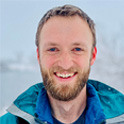
Our interdisciplinary hydrology lab integrates mechanistic and machine learning models with field observations, remote sensing, and community expertise to address pressing challenges in surface water systems. We are committed to co-produced and convergent research, ensuring that our science is rigorous, relevant, and responsive to community needs. By linking advanced modeling with real-world context, we generate actionable knowledge to support sustainable water management, strengthen climate resilience, and protect freshwater ecosystems.

We focus on evolutionary, functional and behavioral ecology, with applications to conservation and environmental issues. The major question is how environmental change and variation affect life history traits, population structure and dynamics, and species interactions over ecological and evolutionary time. Environments vary on multiple spatial and temporal scales. Additionally, both the abiotic and biotic components of the environment may vary, for example in cases of species' invasions.
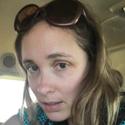
Marine biogeochemistry, Marine nitrogen cycle, Nitrogen and carbon stable isotopes, Molecular microbial ecology, Dissolved gases (N 2 , O 2 , Ar) as tracers of oceanic physical and biological processes, Trace gas production (N 2 O) in marine environments, Chemosynthetic deep-sea ecosystems, Oxygen minimum zones.

My research is in Remote Sensing, Satellite Oceanography, Physical Oceanography and Air-Sea Interaction. My research has focused on the use of Satellite Remote Sensing for studying ocean circulation utilizing both active microwave sensors (altimeters, scatterometers, imagers) and passive optical sensors (ocean color and sea-surface-temperature), as well as in the combination of passive/active (radiometer/radar) instruments.

Dr. Cisneros de León’s research explores the complex processes and timescales that shape Quaternary magmatic systems responsible for explosive eruptions. His work focuses on the microanalysis of geochronologically significant accessory minerals, particularly zircon, integrating field observations with petrochronology, high-temperature geochemistry, thermochronology, chemical diffusion studies, and thermochemical modeling.
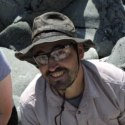
timescales of convergent tectonics; fluid-rock interaction in the crust/mantle; metamorphic petrology; high-temperature radiogenic and stable isotope geochemistry
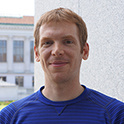
I use seismic waves to investigate the structure of the Earth's interior to understand how the Earth has evolved since its formation. My focus is on pushing the resolution limit of our observations of Earth's structure so that we can better understand the dynamic processes operating inside. My recent research topics include: the fate of the slab subducting under Alaska, the pattern of mantle convection indicated by seismic tracers, layering in the outer core, and the growth history of the inner core.
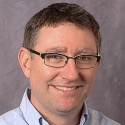
Dr. Fuente's research is situated at the intersection of infrastructure planning, environmental policy, and international development and focuses specifically on the provision of water and sanitation services in low- and middle-income countries. Trained as an environmental economist, urban planner, and environmental scientist, Dr. Fuente has conducted extensive fieldwork in East Africa (Kenya), the Middle East (Egypt), and South Asia (India). His research has been supported by the World Bank, USAID, the SIDA-funded Environment for Development Initiative, and the Global Development Network.
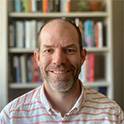
Dr. Hardy received his Ph.D. in Integrative Conservation and Geography from the University of Georgia in 2016. He held a Postdoctoral Fellowship at the University of Maryland’s NSF-funded National Socio-Environmental Synthesis Center from 2016-2019. He received his M.S. in Ecology in 2009 and three B.S. degrees in Marine Sciences, Biology, and Ecology with a minor in Anthropology from the University of Georgia in 2003. He has been at USC since 2019 and is jointly appointed in the School of the Earth, Ocean & Environment and the Department of Geography.
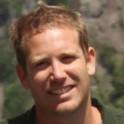
Dr. Harrison’s research examines the relationship between energy and society, with a particular focus on political economy and power relations. Portions of his work have been published in the Annals of the Association of American Geographers, Geoforum, and Local Environment. His research has been supported by the National Science Foundation, Center for Study of the American South, and the University of North Carolina.
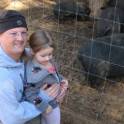
Past Director of the UofSC Genomics facility, Joe Jones's research has focused on conservation genetics, genetic connectivity, and genetics of rare populations (especially in fish and plankton); molecular phylogenetics and ecology, microbial ecology, natural history, and technology development. As the Faculty Principal of Green Quad, his most recent work connects this expertise to undergraduate and graduate hands-on learning experiences in aquaponics and heritage landrace propagation.
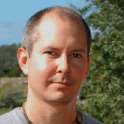
My general research interests are in marine ecology, particularly the influence of biological and physical factors on the community dynamics of coastal fauna and flora. I am especially interested in the influence of such factors on the distribution and movement of juvenile and adult stages of estuarine and coastal fishes and invertebrates, as well as the effects of habitat on the survival and growth of these organisms. I have pursued these interests through research efforts, often combining field and laboratory approaches, in a wide range of estuarine systems and the coastal ocean along the US Atlantic and Gulf coasts.
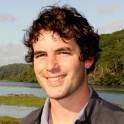
David’s research examines the history and contemporary articulations of Andean landscapes, in particular, how past discursive landscapes shape the material geographies of the present, and vice-versa. His current book project is a historical ethnography of an ongoing conflict over a proposed copper mining in northwestern Ecuador. This project draws on his doctoral dissertation, research that combined two years of two ethnographic fieldwork and archival research in Ecuador with David’s own experience of working in the country since 2000, as well as archival research in the US and the UK.
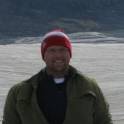
Clastic sedimentology, stratigraphy, sediment provenance, basin analysis, tectonics and sedimentation, stable isotopes, paleoelevation, paleoclimate, petroleum geology, reservoir architecture and characterization.
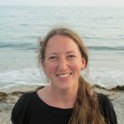
Marine ecosystems are heavily impacted by human activities, including climate change, fishing, offshore infrastructure, vessel traffic and pollution. Erin uses quantitative and computational tools to examine these influences on commercially valuable and at-risk species, including zooplankton, fish and marine mammals.
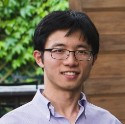
Microbes interact among themselves and with the physical world. They respond to environmental changes in ways that shape the physical world in turn. I develop, apply, and integrate novel methods in microbial ecology and geochemistry to study these intricate relationships found in marine environments.
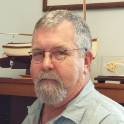
I'm a marine ecologist who studies how marine ecosystems work, especially in terms of how they process energy derived from microscopic plants (phytoplankton and microalgae). Most of my work is conducted in estuarine and coastal waters, including the Gulf of Mexico, San Salvador Island in the Bahamas, North Inlet Estuary on the South Carolina coast, and Galveston Bay, Texas.
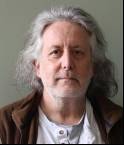
Marine Population Genetics
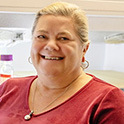
I study phytoplankton...the microscopic algae that give the ocean its greenish color and that photosynthesize, removing CO2 from the atmosphere. Specifically I'm interested in how light, nutrients, and temperature influence phytoplankton growth and taxonomic composition, including the development of "red tides" (harmful algal blooms).

Dr. Romero’s research focuses on uncovering geochemical signatures in the ocean as archives of how marine systems function and respond to natural and anthropogenic events. She uses organic chemistry and isotopic tracers in diverse samples from natural environments, and experiments to study the source, transformation processes, and fate of molecules in marine systems.
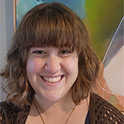
Dr. Ross received her Ph.D. in earth and environmental sciences from the University of Rhode Island in 2020 and completed her postdoctoral fellowship with the U.S. Environmental Protection Agency in 2024. Her research has focused on wetland soils, nutrient cycling, greenhouse gases, wastewater science, and environmental modeling of emerging contaminants.

Dr. Ryker explores connections between reformed classroom practices, student learning, teaching beliefs and the implementation of inquiry-based labs in introductory geoscience lectures and labs. Her research interests also include online educational resources, professional development, and student learning strategies and engagement in large introductory courses. She is part of a team looking at the connection
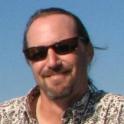
Estuarine ecology, aquatic microbial ecology, carbon and nutrient biogeochemistry, terrestrialaquatic coupling in the coastal zone, eutrophication, environmental monitoring and assessment of coastal ecosystems

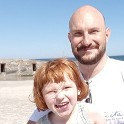
I'm an ecological engineer oriented towards applied biogeochemistry. My focus has been characterizing water quality issues and advancing sustainable solutions to restore ecosystems and safeguard human health, often in international contexts. This has generally entailed creating settings for natural biogeochemical or physical processes to proceed optimally (e.g., floating treatment wetlands, bioreactors, stormwater wetlands, living shorelines). Being located at Baruch Marine Field Laboratory, I'm especially interested in coastal ecological engineering applications.
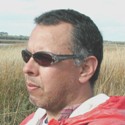
Field and lab work designed to investigate processes that control the production, transport, and storage of water and sediment in terrestrial and intertidal landscapes. Funded research projects are on intertidal zone hydrology and geomorphology, near-surface saturated and unsaturated zone hydrology, and watershed management
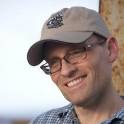
Most of the Earth's surface is hidden underwater, from the deep seafloor to wetland environments. Revealing the patterns and processes in these marine environments is the overarching theme of Scott's research group in marine geology and geophysics.
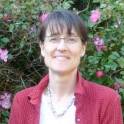
My research is in the field of hydrogeology, from the role of groundwater in coastal ecohydrology to the origin and evolution of porewaters in large sedimentary basins. A particular focus right now is submarine groundwater discharge (SGD), which discharges nutrients and other solutes to coastal systems ranging from tidal creeks to the continental shelf.
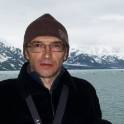
My primary research interests are focused on the flow dynamics on continental shelves, in marginal seas and in estuaries. This includes wind- and buoyancy-driven currents, transient and time-variable processes, long waves and wave-current interaction, mesoscale variability, and adjustment of waves and currents to topographic and coastline features. My research comprises numerical modeling and the analysis of observational data.
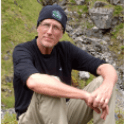
My research combines geological field work with geochemical studies that focus primarily on the use of trace element and isotope geochemistry to understand igneous processes. I am particularly interested in understanding how the geochemistry of subduction-related magma is controlled by tectonics in different subduction settings.

Bioavailability of Arctic soils, Biogeochemistry of darkening glacier surfaces, Environmental controls of hydrocarbon degradation